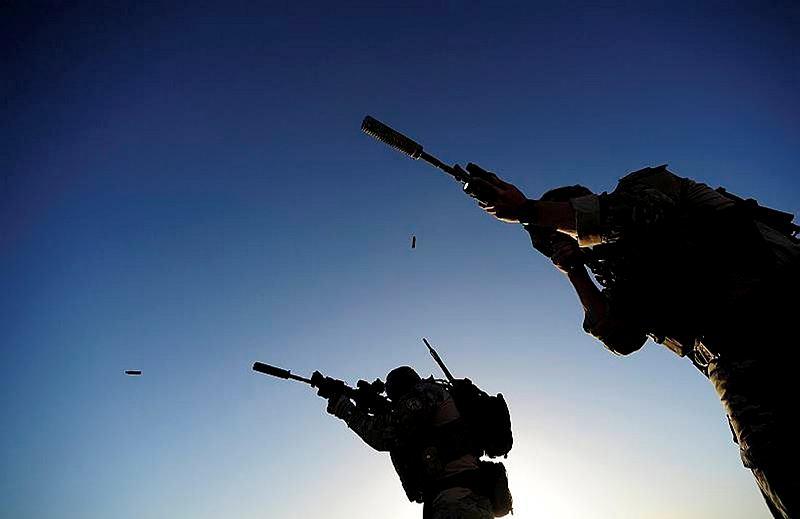 I recently visited one of the ADF’s special operations units to observe some firearms training conducted by a visiting American expert: let’s call him ‘Joe’. Joe lauded the commitment displayed by the operators he was training. In fact, one of the unit’s in-house instructors relayed that one particularly committed trainee had gone home and cut a mock-up of his M4 rifle out of wood so that he could practice his weapon manipulations in his own time. Most of those present chuckled, but Joe was puzzled. After an embarrassed pause, the instructor explained that, unlike in the US, it’s impossible for Australians—including members of the military—to own the semi-automatic equivalent of the M4 unless they make their living culling roos. Nor could the enthusiastic student legally avail himself of common alternatives to the real thing (airsoft guns, or realistic replicas) to practice with.
I recently visited one of the ADF’s special operations units to observe some firearms training conducted by a visiting American expert: let’s call him ‘Joe’. Joe lauded the commitment displayed by the operators he was training. In fact, one of the unit’s in-house instructors relayed that one particularly committed trainee had gone home and cut a mock-up of his M4 rifle out of wood so that he could practice his weapon manipulations in his own time. Most of those present chuckled, but Joe was puzzled. After an embarrassed pause, the instructor explained that, unlike in the US, it’s impossible for Australians—including members of the military—to own the semi-automatic equivalent of the M4 unless they make their living culling roos. Nor could the enthusiastic student legally avail himself of common alternatives to the real thing (airsoft guns, or realistic replicas) to practice with.
While it’s less difficult for diggers to get in some off-duty practice with a handgun, the system is still stacked against them. A handgun license requires first joining a club and completing their safety course, which can take up to 6 months. And no, three tours of Afghanistan doesn’t exempt you from having to sit through a class in which it’s explained that you shouldn’t point your gun at anything you don’t intend to shoot. Nor does the fact that you’ve completed a virtually identical safety course in a different state. Given that military personnel are redeployed every two or three years, this makes handgun ownership challenging for them. Furthermore, it’s necessary to compete in at least six pistol competitions per year. Tough luck if you’ve been deployed to Afghanistan for six months of the year and away on training courses for another two or three, and your club only runs one pistol competition a month.
So what? Why should we care about military personnel having shooting opportunities beyond their in-house military training? If you know someone in the military, try asking them whether they think they get enough trigger-time on their rifle. Then, if you really want to make them laugh out loud, ask how much handgun practice they get. The reality is that, like any military, the ADF only trains its people to meet a standard that is achievable by the least capable person allowed to continue to wear a uniform. Weapons training is constrained by time and funding, and can realistically only seek to achieve a base level of competence.
But is ‘competence’ enough? As you read this, Islamic State fighters are honing their fighting skills in the fervent hope that they might get to kill the enemy, which could potentially be an Australian soldier. Some have had a decade’s worth of combat experience, come from a long line of battle-hardened fighters, and aren’t constrained by health and safety regulations. And there are thousands of others like them all around the world. When (not if) one of our diggers comes face to face with one of these fanatics, it won’t be about check-the-box competence. It’ll be competitive, and in this competition there’s no silver medal. The goal for our diggers should be excellence, not competence. Those who serve in the ADF put their lives on the line to defend Australia. Surely we owe them the opportunity, should they so choose, to hone their weapons skills so that they’ll be in with the best possible chance of dominating that competition. It’d be absurd to train our Olympic athletes to the point of competence in their sport, but not allow them the opportunity to develop themselves to the point of excellence. And Olympic athletes don’t come home in body bags if they lose.
The visiting American, ‘Joe’, has never been in the military or the police. Yet his shooting skills are such that our special forces operators just shake their heads in wonder. That’s the power of competitive sports shooting. As Joe likes to say, with Zen-like wisdom, ‘if you always hit, you’ll never miss.’ If we’re to give the same opportunity to our diggers Australia’s firearms laws will need to be amended. The obvious place to start is with who qualifies for Category D licenses. Those allow ownership of military-style semi-automatic rifles and shotguns. Currently, qualifying for a Category D license is limited to ‘professional shooters whose principal occupation is the controlling of vertebrate pest animals.’ The diggers are professional shooters, but their principal occupation is the safeguarding of Australian strategic interests. Surely that profession has a legitimate claim for ownership?
Deane-Peter Baker is a senior lecturer in the School of Humanities and Social Sciences at the University of New South Wales, Canberra. Image courtesy of Department of Defence.